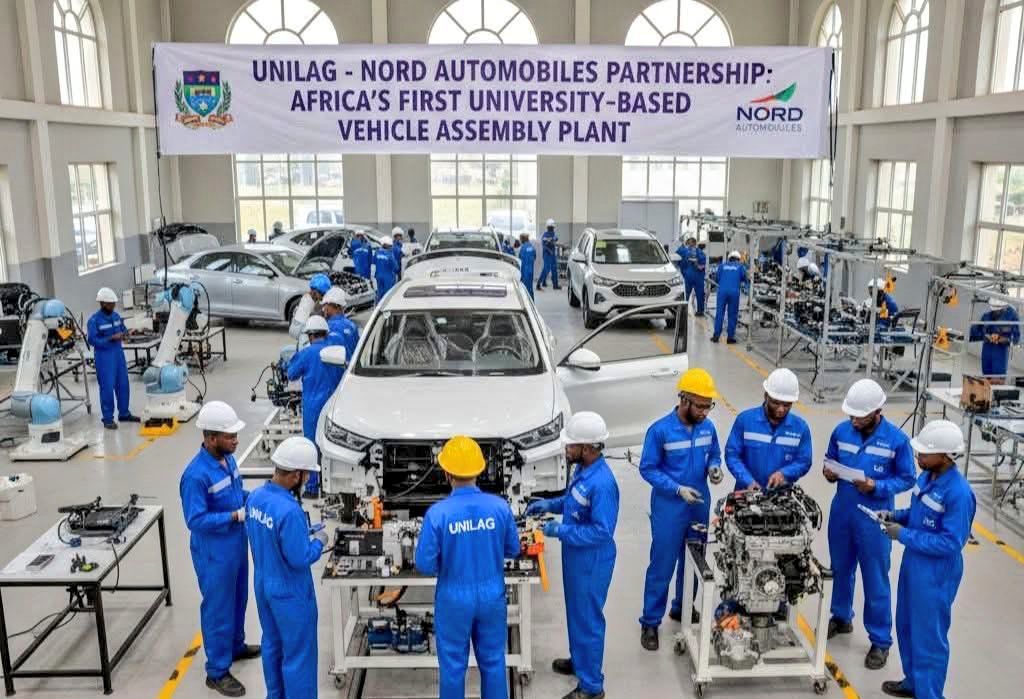The University of Lagos (UNILAG) is quietly reshaping the story of higher education in Nigeria and, in the process, driving the nation into a new era of innovation and industrial advancement.
In a bold stride that merges academia with enterprise, UNILAG has positioned itself at the forefront of Africa’s automotive revolution. The institution recently unveiled the continent’s first university-based automobile assembly plant, a landmark achievement that blends intellectual rigor with practical innovation.
What began as a visionary experiment has evolved into a living, breathing hub of creativity, a place where engineering meets entrepreneurship, and classrooms merge seamlessly with production lines.
In partnership with Nord Automobiles, a Nigerian auto manufacturing company, UNILAG’s Lagos-based facility has, since its inauguration on November 10, 2022, been assembling vehicles and drones, training students, and laying the groundwork for Nigeria’s emergence in advanced automotive technology.
Far beyond a ceremonial milestone, the UNILAG–Nord Auto Assembly Plant stands as a fully functional innovation ecosystem. It houses a research and development center, a state-of-the-art assembly line, a sleek vehicle showroom, and a comprehensive after-sales workshop, all under one roof.
Inside this dynamic space, education takes a transformative leap from theory to practice. Engineering students no longer just study torque, combustion, and aerodynamics; they experience them first-hand, collaborating with industry experts, experimenting with designs, and developing the managerial skills needed to thrive in Nigeria’s evolving industrial landscape.
While many institutions announce lofty ambitions and fade from the spotlight, UNILAG has quietly and consistently delivered impact. By weaving innovation into the fabric of education, the university is not only contributing to Nigeria’s auto industry — it is redefining what it means for academia to drive national progress.
The partnership underscores UNILAG’s enduring reputation as a center of excellence, one that builds capacity, nurtures local talent, and fuels the country’s pursuit of homegrown manufacturing and technological self-reliance.
As one observer aptly put it, “Nigeria’s road to industrial transformation may not begin in a factory, it may begin in a classroom.”










